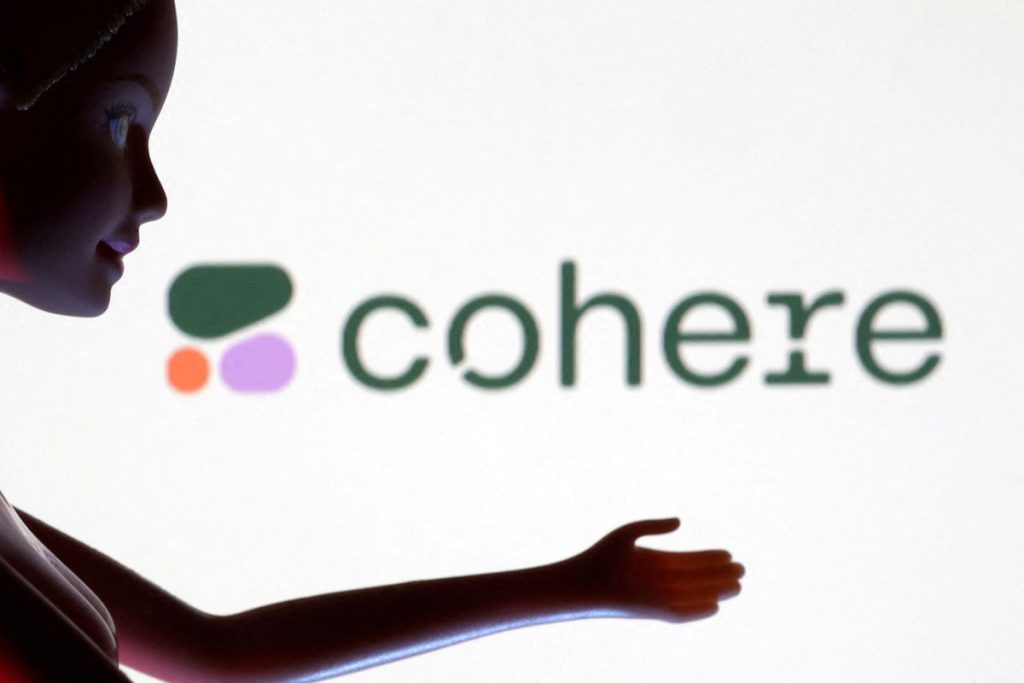Toronto-based artificial-intelligence company Cohere Inc. is asking a U.S. court to throw out a copyright lawsuit filed against it by news media companies, including the Toronto Star, arguing that the publishers misunderstand its business model and “deliberately misused” its tools to “manufacture” the case.
The publishers, including Condé Nast, The Atlantic, Politico and others, filed the lawsuit against Cohere in New York in February. The publishers claim that Cohere scraped news content for its AI models and engaged in “massive, systemic copyright infringement.” The lawsuit included examples of Cohere’s AI tools reproducing articles verbatim in some cases, even recent items and those behind paywalls.
Cohere said in a motion to dismiss the suit Thursday that it is a “different kind of AI company.” Other developers such as OpenAI build consumer-facing chatbots used by hundreds of millions of people for help with homework, writing fiction and other tasks. Cohere said its tools are instead used by businesses for things like searching proprietary data and translating documents.
“That is why not a single thing in [the] plaintiffs’ lengthy complaint suggests that any real customer of Cohere ever has – or even would – use Cohere’s solutions to infringe” on copyright, according to the court filing.
Cohere said that the publishers used a demo tool for developers designed to showcase its AI models to produce examples of the alleged copyright violations. The tool itself is not a product, the company said. “The plaintiffs are intentionally constructing a scenario that would not occur from any real-world use case to form their argument,” the company wrote in a blog post. “This is a foundational failing that dooms most of the plaintiff’s claims.”
AI models are built by scraping huge amounts of content from the internet, generally without consent or payment to the creators of that content. Authors, artists, and media companies have filed a number of lawsuits against AI companies alleging the practice violates copyright laws. Some publishers have also signed agreements with AI companies to license their content for model training.
The Globe and Mail, along with the CBC and other Canadian outlets, filed a copyright lawsuit against ChatGPT-maker OpenAI last year in Ontario, claiming the company “unjustly enriched” itself by unlawfully using news content to build its products. OpenAI, which is based in San Francisco, has indicated in court filings that it intends to challenge the lawsuit on jurisdictional grounds.
Cohere’s motion to dismiss is focused on the output of AI models. The company said its terms of service prohibit customers from using its products in ways that violate copyright laws, and that the publishers in the lawsuit have failed to allege that Cohere bears responsibility for the behaviour of its users.
The media companies have also claimed that Cohere’s tools can provide substantive summaries of news articles. “Summarizing is not infringement, especially when the summaries relay unprotected facts,” Cohere’s court filing states.
When building AI models, Cohere said that the goal is not to copy any particular article or document, but to learn linguistic patterns across a large volume of text. Whether that amounts to fair use is an issue in litigation across the U.S., the company noted.
Last year, Cohere and other developers told the federal government during a consultation about copyright and AI that it favours an exemption in copyright law allowing it to build commercial models without being compelled to pay or obtain permission from content creators to use their material.

